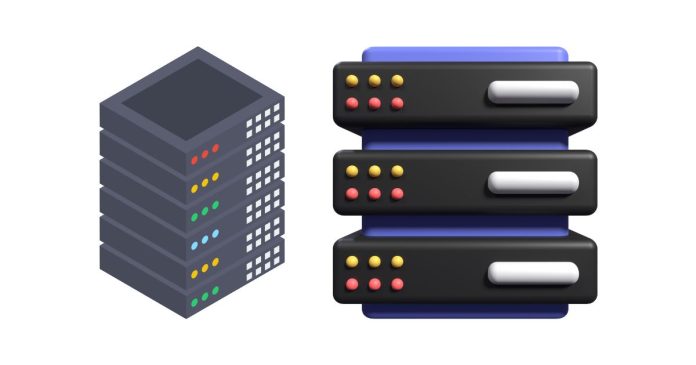In the world of data protection and backup solutions, Veritas NetBackup is one of the leading software platforms used by businesses to ensure the safety and reliability of their data. One of the key components of this system is the EMMS (Enterprise Media Management Server) server. But what exactly is the EMMS server in Veritas NetBackup, and why is it so crucial to the system’s overall functionality? Let’s break down its role and significance in the context of NetBackup.
What is the EMMS Server?
The EMMS server, or Enterprise Media Management Server, is a component within the Veritas NetBackup architecture that manages the lifecycle and status of backup media, ensuring that the system can handle, track, and organize storage resources effectively. It is responsible for overseeing the management of physical and virtual media used in the backup process, such as tapes, disk storage, or cloud storage.
In essence, the EMMS server acts as a centralized controller for managing the physical resources used in data protection. It ensures that these resources are utilized efficiently, and that backups are properly cataloged, stored, and retrieved when needed. The EMMS server is particularly important for large-scale environments where a considerable amount of data is being backed up across various media.
Key Functions of the EMMS Server
The EMMS server handles several critical functions within Veritas NetBackup:
- Media Management: The EMMS server manages the lifecycle of backup media. This includes handling the creation, allocation, and expiration of backup tapes or disk volumes. It ensures that media is available for use when required and tracks the status of each media to ensure it is correctly labeled, utilized, and returned to the proper storage locations.
- Inventory and Cataloging: The EMMS server is responsible for maintaining an up-to-date inventory of all backup media in use. It tracks the media’s status, whether it’s in use, available for reuse, or expired. The server also keeps a catalog of backups, making it possible to track which data is stored on which media, and allows for efficient retrieval when restoration is necessary.
- Resource Allocation: In environments with multiple backup devices, the EMMS server manages the allocation of resources, ensuring that backups are directed to the appropriate storage media. By managing this process, the EMMS server helps ensure that the backup process runs smoothly without any resource conflicts or bottlenecks.
- Monitoring and Alerts: The EMMS server plays a role in monitoring the health and availability of backup media. It generates alerts when media is running low, damaged, or needs attention. This proactive monitoring helps ensure that there are no interruptions in backup operations and that all backup resources are functioning optimally.
- Tape Library Management: For environments that rely on tape storage, the EMMS server integrates with tape libraries, controlling the loading, unloading, and tracking of tapes. It helps automate many of the manual processes traditionally associated with managing physical media, thus reducing the chances of human error and increasing overall efficiency.
How the EMMS Server Fits into the NetBackup Architecture
Veritas NetBackup is built on a modular architecture with various components working together to provide comprehensive data protection. The EMMS server operates alongside other core components, such as:
- Master Server: The central server that manages the entire NetBackup environment, including scheduling, configuration, and monitoring.
- Media Server: A server that handles the actual backup and restore operations, interacting with storage devices.
- Client: The machines that have their data backed up by NetBackup.
The EMMS server complements these components by ensuring that the physical media used for backups is properly managed and integrated into the system’s overall workflow. It communicates with the master server and media server to update media status and ensure that the correct resources are available for backup operations.
Why Is the EMMS Server Important?
In large enterprise environments where multiple backup operations are taking place across a range of devices and storage media, having a dedicated server to manage backup media is essential. The EMMS server helps to:
- Improve Efficiency: By automating the management of backup media, the EMMS server reduces the need for manual intervention, making backup processes faster and more efficient.
- Ensure Data Integrity: By tracking and cataloging backup media, the EMMS server helps prevent data loss, ensuring that critical backups can be retrieved when needed.
- Reduce Downtime: With proactive monitoring and alerts, the EMMS server helps detect issues before they become major problems, reducing the risk of downtime or interruptions in backup operations.
- Enhance Scalability: As organizations grow and their data protection needs become more complex, the EMMS server ensures that the backup system can scale effectively by managing a growing amount of backup media and resources.
The EMMS server in Veritas NetBackup plays a crucial role in ensuring that backup media is efficiently managed, tracked, and utilized across a data protection environment. Its ability to automate tasks like media management, inventory tracking, and resource allocation allows businesses to focus on their core operations without worrying about the logistics of data backup. Whether an organization is using physical tapes, disk storage, or cloud solutions, the EMMS server helps keep backup operations running smoothly and securely, making it an indispensable part of the Veritas NetBackup ecosystem.


